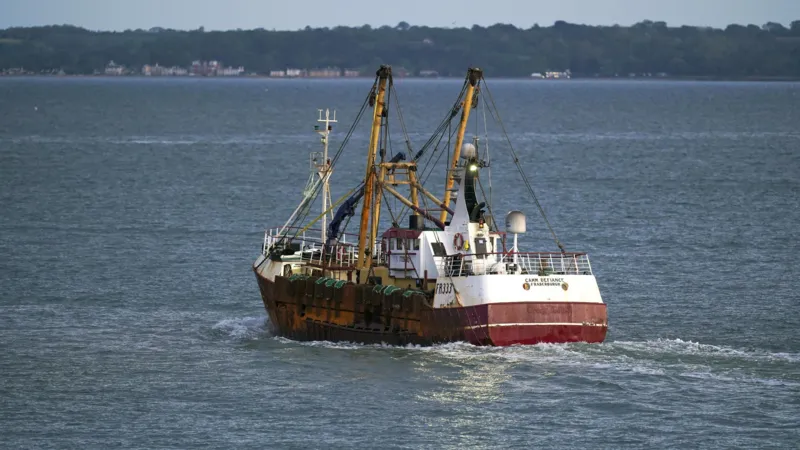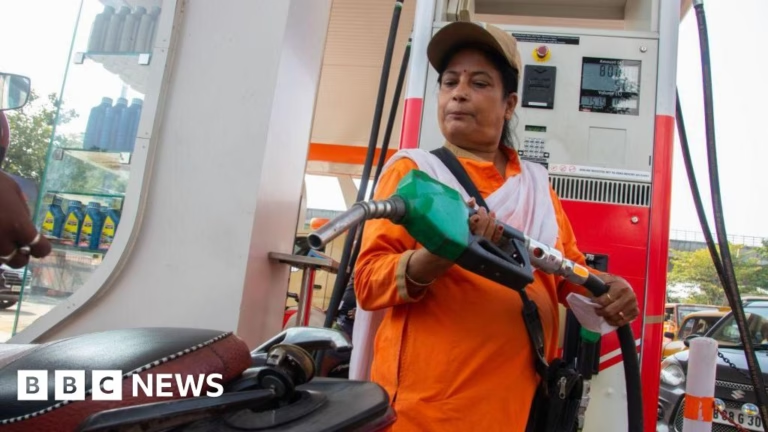<
div id=””>

OneLantern Studio/Shutterstock
On Monday, the EU and the UK will hold their first bilateral summit since Brexit. Symbolically, this is a big moment.
Officials and analysts we’ve spoken to, on and off the record, are quick to point out difficulties that exist between the two sides.
But all acknowledge the bilateral bitterness provoked by Brexit is no more. It’s been eviscerated by the gravity of global events.
Concerns about Russia and China, the war in Ukraine, the shock of the US under Donald Trump no longer prioritising European defence, plus a growing sense of voter insecurity is propelling the two powers to work closer together.
Most European countries realise that, he adds: “Even the French.”
More than most EU countries, France has been playing hardball in pre-summit negotiations.
Is it a coincidence that as talks went to the wire before Monday’s summit, the UK announced that France’s president has been invited for his first state visit?
King Charles and Queen Camilla will host Emmanuel Macron and his wife at Windsor Palace in July. A UK attempt to butter up the French leader, perhaps?
“It’ll be interesting to see if they can agree common language [for a summit agreement],” says Georgina Wright, European policy expert at the Institut Montaigne.
“Everyone in the EU wants closer relations with the UK right now and France doesn’t want to be seen as the one country blocking closer UK-EU cooperation. But that does not mean that Paris is willing to give up on core interests.”
Interests like fishing rights in UK waters and bidding for EU defence contracts.
.jpg.webp)
The Telegraph/PA
On the day itself, we can expect three separate announcements:
- A joint declaration that addresses the worrying geopolitical situation and emphasises UK-EU shared foreign policy priorities – such as supporting Ukraine, keeping up pressure on Russia, and ending civilian suffering in Gaza
- An EU-UK security and defence pact
- A package of measures targeted at removing some trade barriers between the EU and UK that have come about because of Brexit
Closer economic ties to Europe
They are far from an economic gamechanger for the UK, though. Hardly what you’d call ambitious.
Destroying all trade barriers with the EU is impossible if the Labour government keeps to its own “red lines” of not rejoining the bloc’s customs union or single market.
Despite promising to prioritise UK economic growth, and polls suggesting the majority of Britons want to do more trade with the EU, Labour will feel hemmed in by the increasingly popular, Eurosceptic Reform Party.
It performed well in recent local elections in the UK.
While some in Labour (quietly) admit they are tempted by a customs union with the EU to boost growth, any economic benefits would likely not be apparent to voters before the next UK election.
Party members fear they would risk being punished at the polls, amidst accusations by the opposition Conservatives and Reform that the government would have betrayed Brexit.
“These concerns make the Starmer government ‘more cautious, less bold'”, says Mr Menon.
So what will be agreed at the summit?
Many EU-UK negotiating hours have gone into agreeing a plant and animal health deal, known as an SPS agreement.
This will facilitate the export and import of meat and plant products between the EU and UK and help reduce post-Brexit trade complications between Northern Ireland and Britain.
In exchange, the EU insists the UK must agree to following any new SPS rules introduced in the future and accept a role for the European Court of Justice in policing the agreement.
Those conditions will likely be unpopular with ardent Brexit supporters.
They might also put backs up in Washington and complicate the UK doing a wider future deal on agriculture with the US, as the UK would be tied to stringent EU standards.
.jpg.webp)
PA
Currently the EU counts for 41% of UK exports; the US for 21%.
The UK government will probably insist the SPS agreement is good for the British economy. Though animal and plant exports and imports are, in fact, a small part of overall GDP.
“Growth is a bit of a red herring here”, says Mr Menon.
On the EU side, the French, backed by other fishing nations like the Netherlands and Denmark, have taken a tough stance in these talks – refusing to sign up unless the UK agrees to long-term EU fishing rights in UK waters.
The current post-Brexit fishing agreement expires next year.
Free-er movement for some
Starmer will get his ask, for the EU to recognise UK professional qualifications, to encourage cross-border business.
There will also be a reduction in visa restrictions for UK musicians travelling and performing in the EU.
In exchange, the EU – and Germany, most passionately – wants a youth mobility scheme, allowing young EU citizens to travel, study, and even work in the UK.
The UK has similar schemes with Canada, Australia, South Korea and Japan, amongst others. But this has been tricky to agree.
Reducing migration figures is a number one priority for the Labour government.
It’s a hot-button issue and the UK Home Office will seek to toughen conditions and limit EU numbers.
Some areas of negotiation are more advanced than others. This will be reflected in Monday’s announcement.
There will also be talk at the summit of plans to tackle illegal migration, cooperate on carbon border taxes, and simplify energy trading between the EU and UK.
Reducing EU-UK trade barriers on chemicals and pharmaceutical goods is also a UK ambition, as is getting access to EU databases, like the Schengen Information System, to better track down criminals.
But for now, at least, the EU is saying no to that. If it makes an exception for the UK, other non-EU countries will demand the same, it insists.
Of course, it’s in the interest of both sides to fight cross-border crime. The UK argues the current state of the world calls for more flexible thinking from Brussels.
Defence and security complications
The EU and UK already work closely together on Russian sanctions and defending Ukraine. And the pact isn’t a legally binding document, so how complicated can these talks be, you may ask?
The answer is pretty complicated.
The UK wants its defence companies to be allowed to bid for contracts under the EU’s new re-armament scheme, SAFE (Security Action for Europe).
“The UK has earned the right to access such a deal because of the leadership it’s shown over Ukraine”, says international defence expert Sophia Gaston, a visiting fellow at King’s College London.








